For All Relevant Information - Quick consultation
For All Relevant Information - Quick consultation
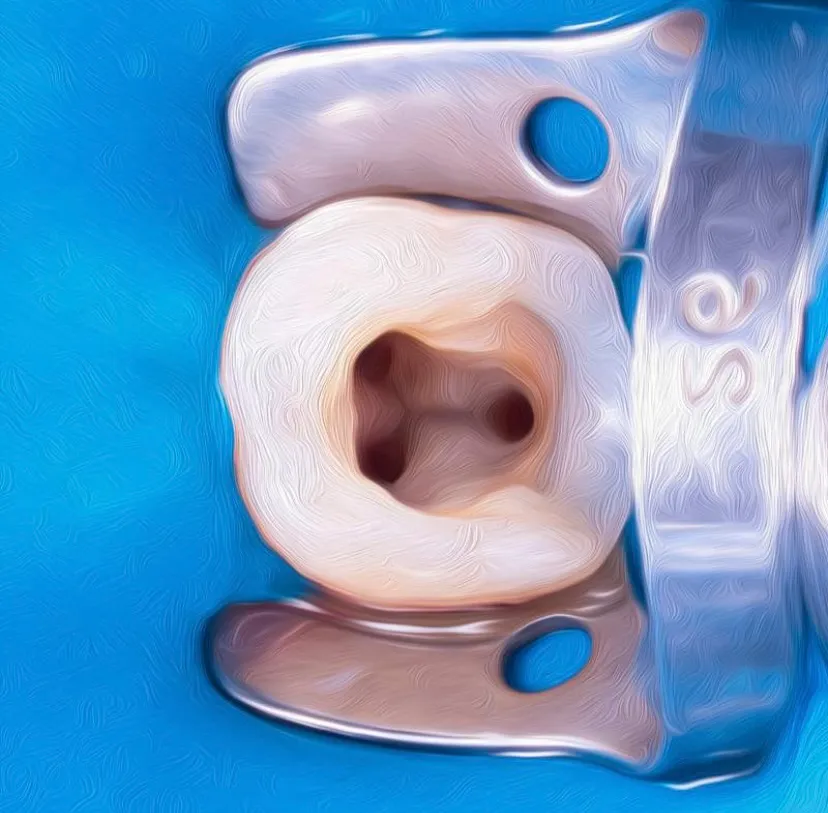
Welcome to Orocare Dental Clinic, where we provide comprehensive dental care services to our patients. Our experienced dentists and staff are dedicated to ensuring your oral health is at its best. One of the treatments we offer is root canal therapy.
Root canal treatment (RCT) is a procedure that is performed to treat an infected or damaged tooth. It involves removing the infected or damaged pulp tissue from the tooth and cleaning the root canals. The root canals are then filled with a particular material and sealed to prevent any further infection. It is necessary when the pulp tissue inside the tooth becomes infected or inflamed due to deep decay, repeated dental procedures on the same tooth, cracks or chips in the tooth, or trauma to the tooth. If left untreated, the infection can spread and cause an abscess, which can lead to more severe health issues.
At Orocare Dental Clinic, our root canal specialists use the latest technology and techniques to perform root canal therapy comfortably and efficiently. Our dentists will ensure that you are fully informed about the procedure before it begins and will answer any questions you may have. Don’t let an infected tooth cause you pain and discomfort. Contact Orocare Dental Clinic to schedule a consultation with one of our experienced dentists to learn more about root canal therapy and how it can improve oral health.
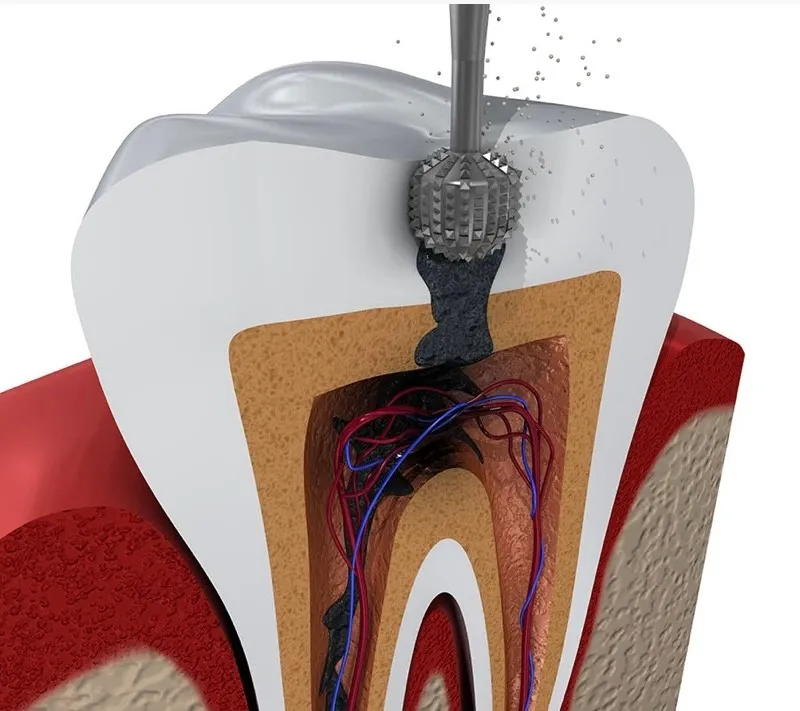
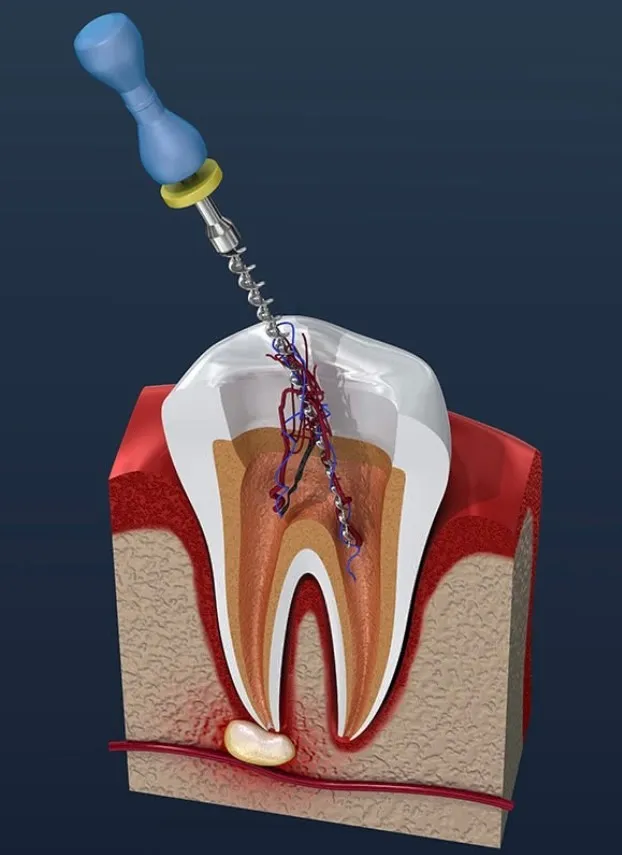
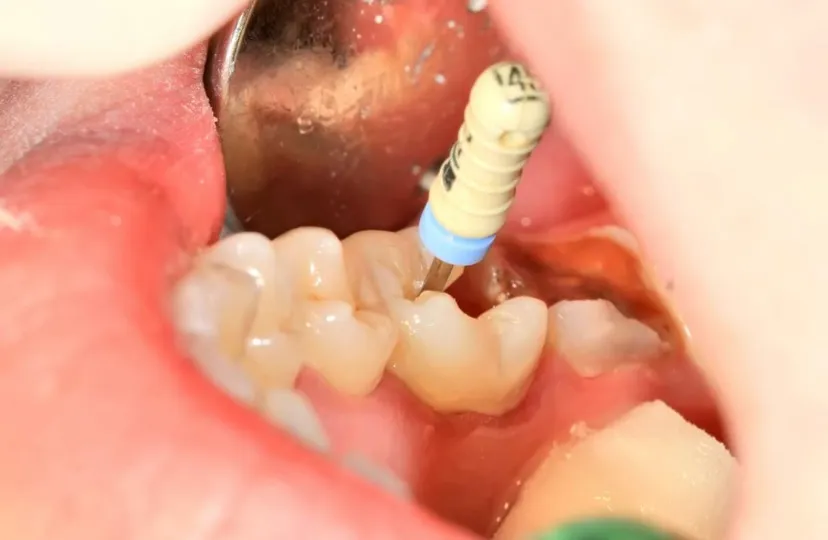
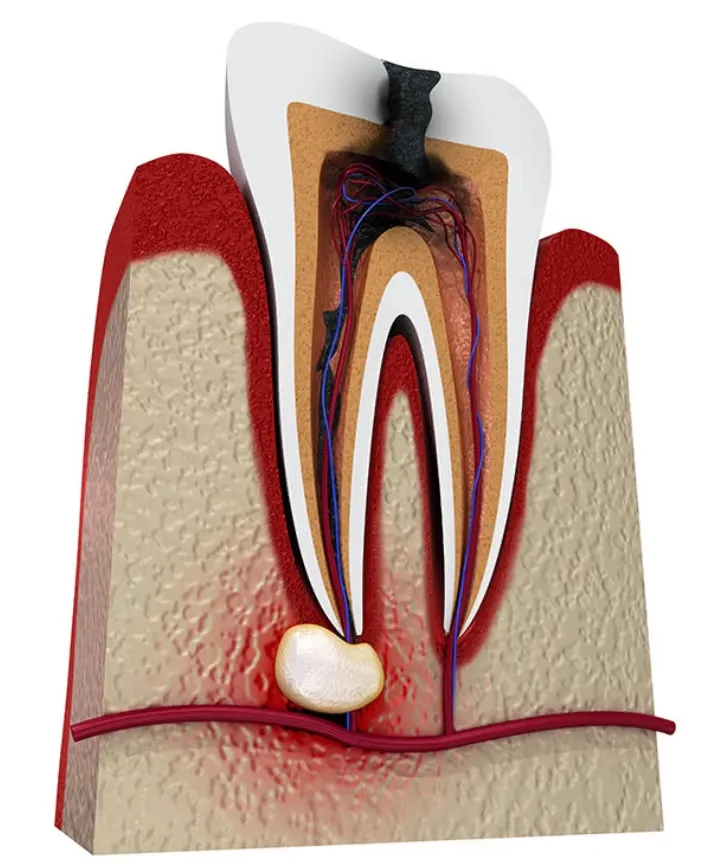
A root canal is a dental procedure performed to treat an infected or damaged tooth. The primary cause of root canal treatment is the presence of deep decay that has reached the pulp, which is the soft tissue inside the tooth that contains nerves and blood vessels. Trauma or injury to the tooth can also damage the pulp and lead to the need for root canal therapy. Other causes include cracked or fractured teeth, extensive dental work, and gum disease. If left untreated, an infected tooth can lead to severe pain, swelling, and even tooth loss. Root canal treatment is a safe and effective way to save a damaged tooth and restore its function. Here, the role of a Root Canal Specialist becomes essential.
Root canal treatment is a dental procedure used to treat a tooth that has become infected or inflamed. The treatment involves removing the infected or damaged pulp from the tooth’s root canal and filling it with a particular material to prevent further infection.
The first step in root canal treatment is to numb the affected area with a local anesthetic. Once the area is numb, the dentist will open the tooth’s crown to access the infected pulp. The dentist will then use small instruments to remove the damaged pulp from the root canal and clean the area thoroughly.
After the root canal is cleaned, the dentist will fill the canal with a particular material to prevent further infection. The dentist will then place a temporary filling on the tooth to protect it until a permanent filling or crown can be placed.
In some cases, the root canal specialist may recommend a crown to protect the tooth and restore its function. With proper care, a tooth that has undergone root canal treatment can last a lifetime. The Root Canal Treatment specialists at Orocare Dental Clinic are very particular about completing all these steps when serving the patients.
Root canal treatment is a procedure that can save a tooth from extraction. It is usually recommended when the pulp inside the tooth becomes infected or inflamed due to deep decay, trauma, or other factors. Here are the steps involved in a root canal treatment:
Root canal treatment can help save a damaged tooth and restore its function. If you are experiencing tooth pain or sensitivity, contact your dentist to determine if a root canal treatment is proper for you. Collaborate with the best Root Canal Specialist today at Orocare Dental Clinic.
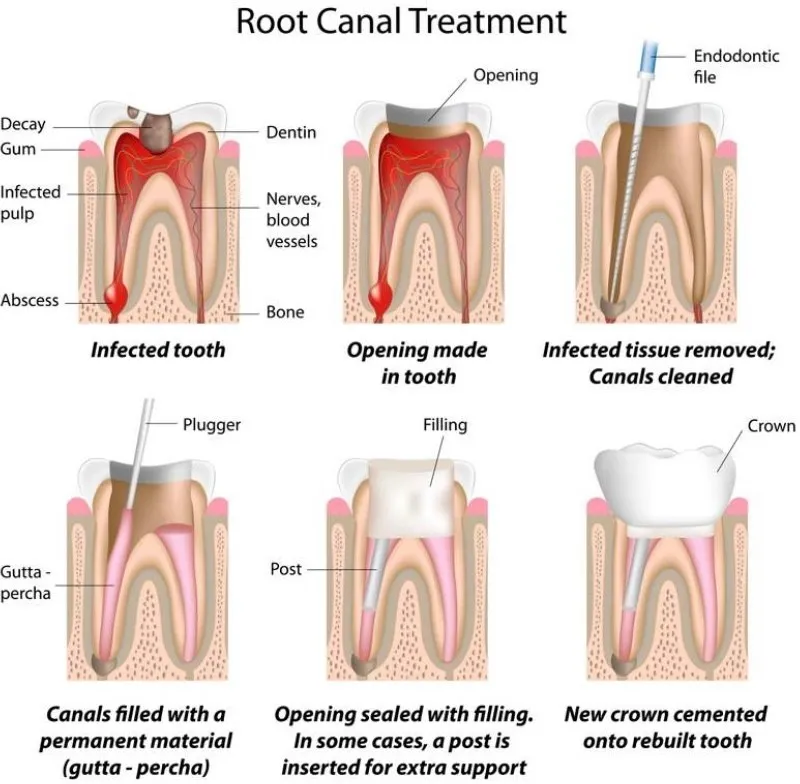
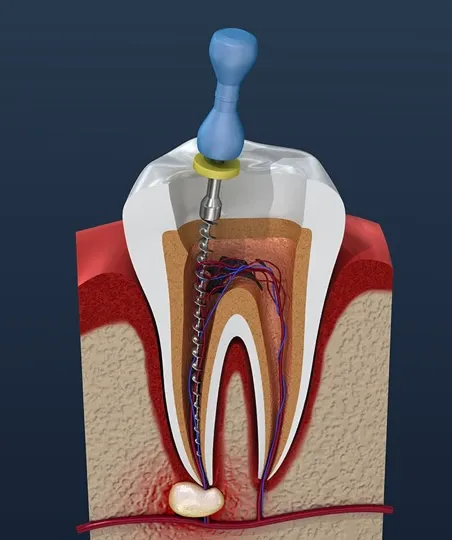

Root canal treatment is a dental procedure that is often associated with pain. However, the pain associated with root canal treatment is often due to the infection and inflammation that precedes the procedure rather than the procedure itself. The dentist will use local anesthesia to numb the area during the treatment, so you shouldn’t feel any pain. You may sometimes experience some discomfort or sensitivity after the procedure, but this can usually be managed with over-the-counter pain medications. It’s essential to follow the post-treatment instructions provided by your dentist to ensure a smooth and pain-free recovery. Remember, root canal treatment is necessary to save a damaged or infected tooth and prevent further complications, so don’t let fear of pain prevent you from getting the care you need.
You may need a root canal if you’re experiencing severe tooth pain, sensitivity to hot or cold, or swelling in your gums. This procedure involves removing the damaged or infected pulp inside your tooth and filling the space with a sealant to prevent further damage. To find a root canal treatment near you, ask your dentist for a referral or conduct a local search online. Look for a qualified and experienced endodontist who can perform the procedure with care and precision. Remember, timely root canal treatment can save your tooth and prevent more extensive dental problems.
Root canal treatment is a common dental procedure that involves removing infected or damaged tissue from the root of a tooth to save it from extraction. The cost of root canal treatment can vary depending on several factors, such as the severity of the condition, the location of the affected tooth, and the experience of the dentist.
On average, the cost of a root canal treatment can vary depending on the challenge level. This price may increase or decrease, and the authorities available at the best dental clinics decide this themselves. Additionally, the location of the tooth can also affect the cost, with molars typically being more expensive to treat due to their complex root structure.
It is important to note that while the cost of a root canal treatment may seem high, it is often a more cost-effective solution in the long run compared to tooth extraction and replacement. Many dental insurance plans may also cover a portion of the cost of a root canal treatment. If you are experiencing tooth pain or discomfort, it is essential to seek the advice of a dental professional. They can assess the condition of your tooth and provide an estimate of the cost of treatment.
Root canal treatment is a dental procedure to save a tooth that has become infected or severely decayed. The treatment typically involves three stages.
The healing time for a root canal can vary from person to person and depends on various factors, such as the severity of the infection, the number of roots treated, and the patient's overall health. However, on average, the tooth can take a few days to a few weeks to feel normal again. It's essential to follow post-treatment instructions carefully to aid in the healing process and ensure long-term success.
Root canal treatments often require two visits to ensure the infection is completely eliminated and the tooth fully restored. The dentist will remove the infected pulp and shape the root canal during the first visit. A temporary filling is placed to protect the tooth until the next visit. The temporary filling is removed at the second visit, and the root canal is filled with a permanent material. This two-visit process ensures that the infection is entirely eliminated and the tooth is restored correctly, reducing the risk of future complications.
RCT (root canal treatment) is usually performed under local anesthesia, which means that patients should not feel any pain during the procedure. However, some patients may experience discomfort or mild pain after the anesthesia wears off. This can be managed with over-the-counter pain relievers or as prescribed by the dentist. Following the dentist's instructions for post-treatment care is essential to minimize discomfort and promote healing.
RCT (root canal treatment) is usually performed under local anesthesia, which means that patients should not feel any pain during the procedure. However, some patients may experience discomfort or mild pain after the anesthesia wears off. This can be managed with over-the-counter pain relievers or as prescribed by the dentist. Following the dentist's instructions for post-treatment care is essential to minimize discomfort and promote healing.
RCT, or Root canal treatment, is also known as endodontic treatment. The treatment involves removing infected or damaged pulp inside a tooth, cleaning and shaping the root canals, and filling them with a biocompatible material to prevent reinfection. The procedure is usually performed under local anesthesia and may require multiple visits to complete. The pulp may become infected due to deep decay, a cracked tooth, or trauma. Without treatment, the infection can spread and lead to an abscess, which can be painful and cause damage to surrounding tissues. Root canal treatment is a highly successful procedure to save a damaged tooth from extraction.
RCT (root canal treatment) is a dental procedure used to treat infected or damaged teeth. It involves removing the infected or damaged pulp from the tooth and replacing it with a filling. RCT is an effective treatment that can save a tooth from extraction. However, it is not always the best option, and other treatments may be more appropriate depending on the individual case. It is essential to consult with a dental professional to determine the best course of treatment for your specific dental needs.
Dental surgeons use the term RCT to refer to "root canal treatment." RCT is a dental procedure that involves the removal of the infected or damaged pulp from the tooth and the subsequent cleaning, shaping, and filling of the root canal system. This treatment is usually recommended to patients with severe tooth decay or trauma to save the tooth and prevent further damage. The RCT procedure is typically performed under local anesthesia and can be completed in one or more appointments, depending on the complexity of the case.